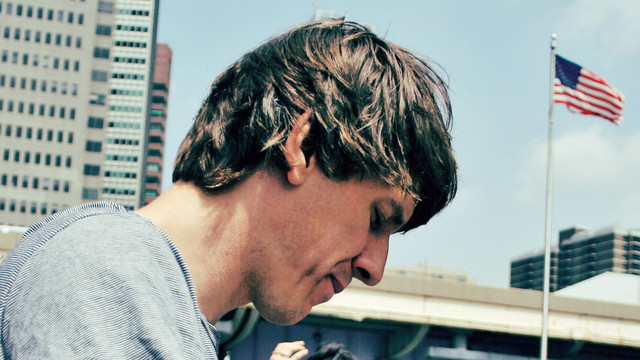BLACKSBURG, Va., Aug. 2, 2013 ? A Virginia Tech Department of Aerospace and Ocean Engineering student team from recently took first place in the 2013 Revolutionary Aerospace Systems Concepts-Academic Linkage ? or RASC-AL, for short ?competition.
The team captured three first place slots, including the Human-Focused Mars Mission Systems and Technologies category; the undergraduate level competition; and the overall competition award. Having captured third place overall in 2012, the team?s theme this year was Project Rhea: A Manned Reusable Spacecraft for the Scientific Observation of Mars, and focused on a fuel-saving fusion rocket.
Sponsored by NASA and managed by the National Institute of Aerospace, the Cocoa Beach, Fla.-set design competition tasks university students with solving the myriad quandaries ? environmental factors, choice of vehicle, fuel source and usage, and return trip home -- associated with a human-based mission to Mars.
Team members include Divyanshu Agarwal of Norfolk, Va.; Dan Corio of Mt. Airy, Md.; Ben Massey of Spotsylvania, Va.; Jacob McGee of Parrott, Va.; Juan Ojeda of Ashburn, Va.; Isaac Root of Fredericksburg, Va.; and Evan Schrantz of Radford, Va. All members graduated in May with bachelor?s degrees in aerospace engineering, part of the College of Engineering.
The competition effort is part of two 4000-level engineering courses with the aerospace department, both taught by Kevin Shinpaugh, director of information technology and computing services for the Virginia Bioinformatics Institute and an adjunct professor in the aerospace department.
?We drew on current plans and designs from other sources to accurately work these?environments?into our overall architecture,? said McGee, student team leader. ?We spent a semester and a half on it, and many of the things that went into our architecture, such as health and radiation concerns, are not something we cover in class. We really had to expand our knowledge on our own time, and hold ourselves accountable for the quality of our work.?
Teams submit a written report, prepare a poster, and give an oral presentation, and also must formulate an education outreach program for younger students in primary and secondary schools, including real-world impact of the mission on common-day life. The team has regularly presented its theme to the Virginia Tech hosted Kids? Tech University as part of this component.
The team is not done with the mission-to-Mars project yet. They will take their presentation this year?s American Institute of Aeronautics and Astronautics Space 2013 Conference, slated for fall. Shinpaugh said each year?s team in the competition starts from scratch on design and presentation. ?I want them to see the whole design process,? he said.
The College of Engineering at Virginia Tech is internationally recognized for its excellence in 14 engineering disciplines and computer science. The college's 6,000 undergraduates benefit from an innovative curriculum that provides a "hands-on, minds-on" approach to engineering education, complementing classroom instruction with two unique design-and-build facilities and a strong Cooperative Education Program. With more than 50 research centers and numerous laboratories, the college offers its 2,000 graduate students opportunities in advanced fields of study such as biomedical engineering, state-of-the-art microelectronics, and nanotechnology. Virginia Tech, the most comprehensive university in Virginia, is dedicated to quality, innovation, and results to the commonwealth, the nation, and the world.
Source: http://www.vtnews.vt.edu/articles/2013/08/080213-engineering-rascalaerospaceteam.html
lindsay lohan bob newhart chris kelly Mayweather Fight Mayweather Robert Guerrero may day

